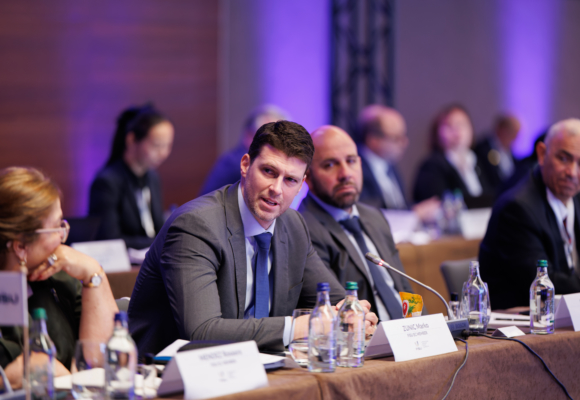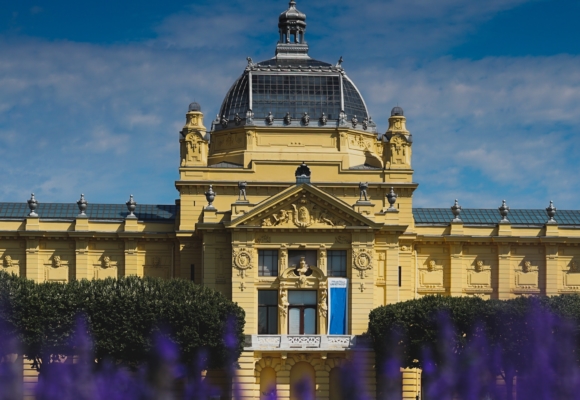Overcoming challenges reverberated throughout the panelist presentations and roundtable discussions during day two of the three-day FISU World Forum
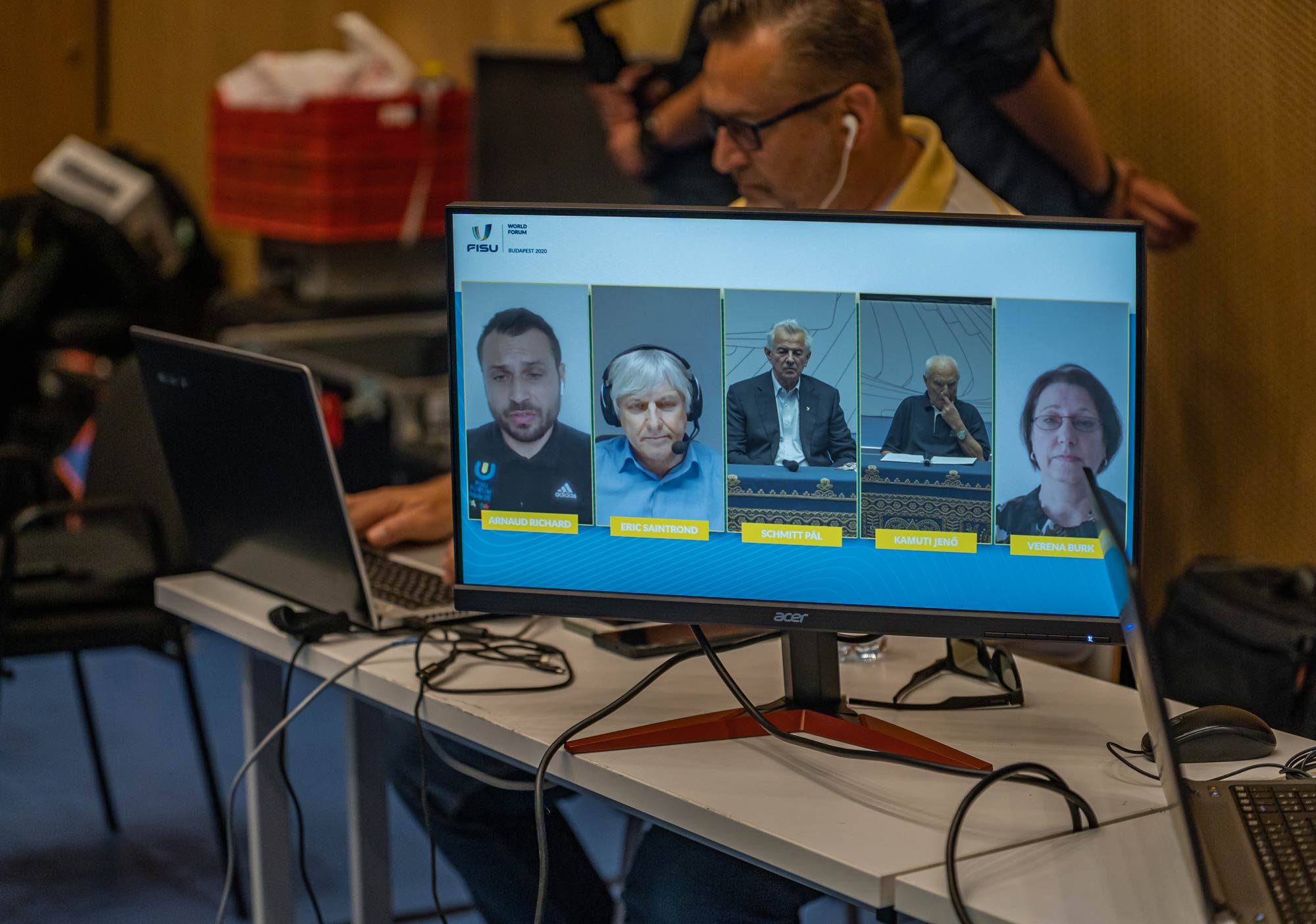
When a pandemic hits, the impact reverberates across society. That’s a given.
We’ve spent months at home, many of us trying to do our jobs and keep up with our schoolwork remotely, sitting for hours on end in front of our tablets, televisions and computer screens.
The university campus and university sports community is no exception to the rule. But it’s what we’re doing during this time of crisis that’s showing the way forward and has our community standing out from the crowd.
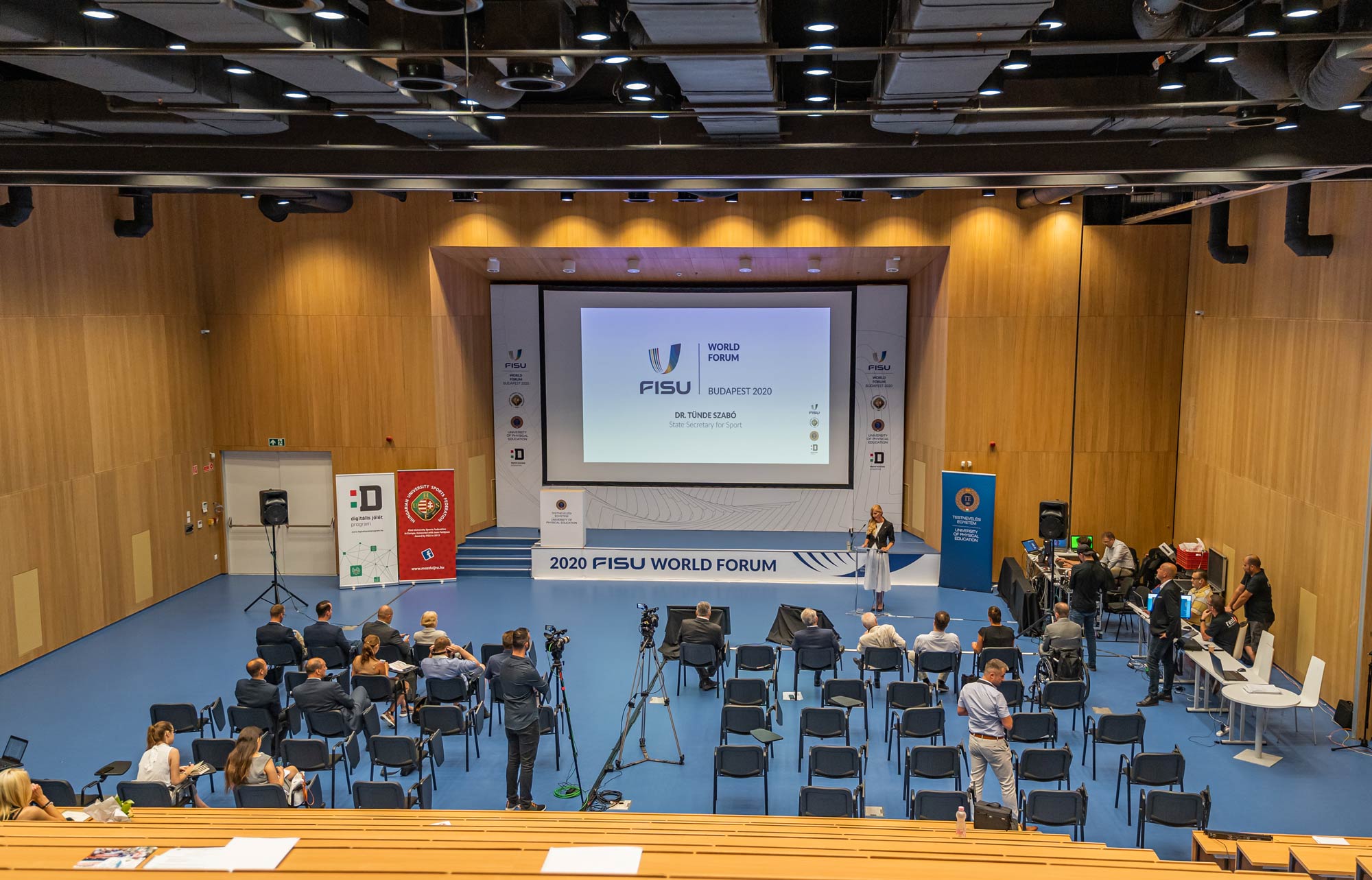 Animating day two of the FISU World Forum were discussions on how the university sports world has been answering challenges caused by COVID-19.
Animating day two of the FISU World Forum were discussions on how the university sports world has been answering challenges caused by COVID-19.
FISU Secretary General–CEO Eric Saintrond joined UNESCO’s Chief of Youth Sport Sector, Alexander Schischlik, as the headliners discussed the central role amateur sport and young leaders must play to promote a healthy lifestyle, not least in the growing battle against obesity and rising inactivity.
“Our youth is 60% of the world’s population,” Schischlik said. “They have a passion for sports; they can use this in their communities. We try to help them develop their capabilities to use sport for community development.”
The UNESCO chief noted now’s the time for young leaders to step up during these turbulent times.
“The chaos is so huge that no one can fully evaluate the extent of the damage this pandemic has caused. The economic impact is everywhere, and sports have a huge informal economy around it driven by tireless volunteers working to put on events and at the club level. This has been hugely impacted.
“Inside sports federations there are mostly people like me, white-haired men of European descent,” added Schischlik. “Sports governance has to change. They have to bring in young people into this field. The sports ecosystem will need to be built back up from the grassroots, from the bottom up.”
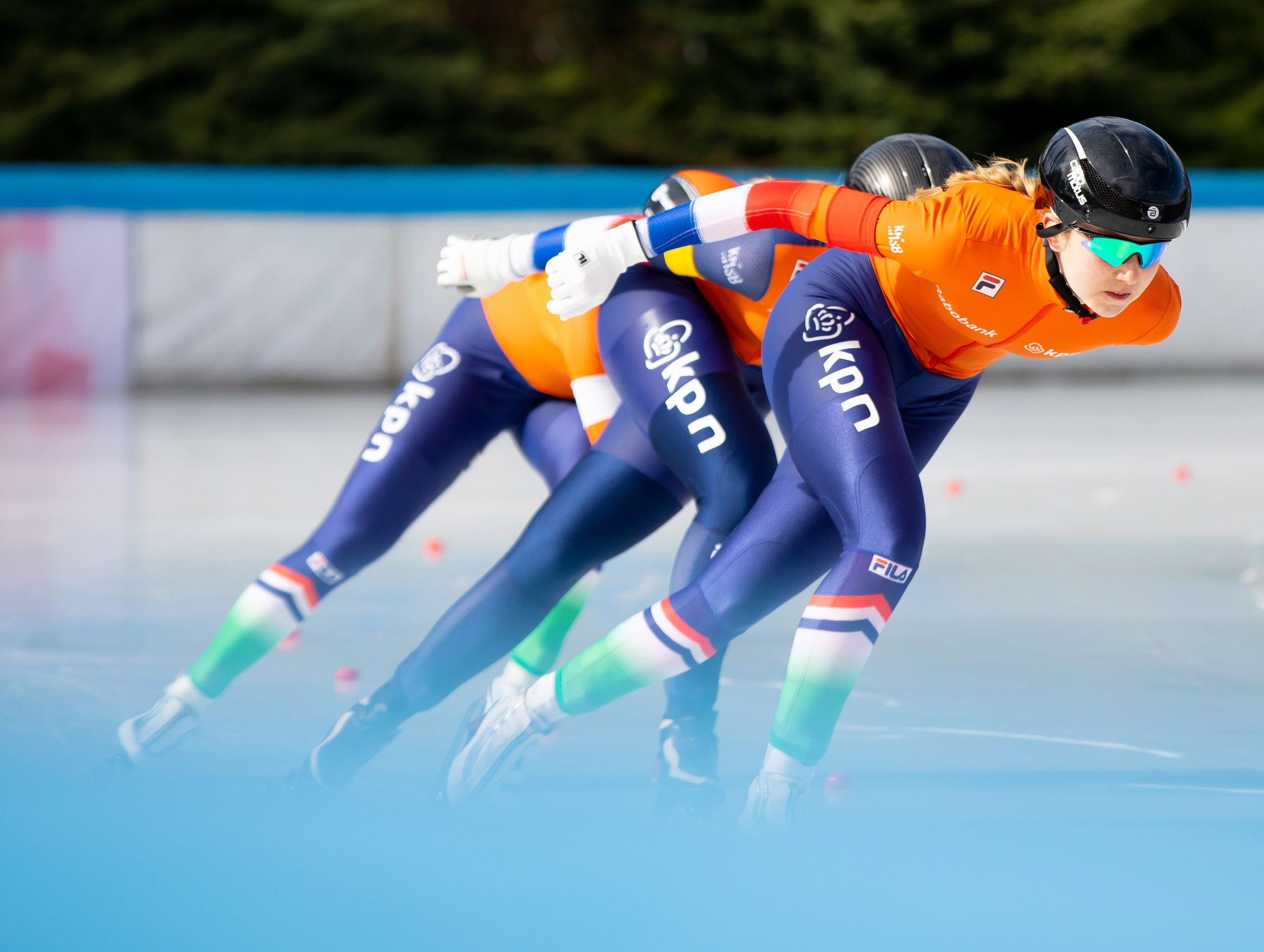 The World University Speed Skating Championships from Amsterdam marked the last FISU event to take place outside a virtual environment, a point FISU Secretary General Eric Saintrond made during his presentation
The World University Speed Skating Championships from Amsterdam marked the last FISU event to take place outside a virtual environment, a point FISU Secretary General Eric Saintrond made during his presentation
With FISU Student Ambassador Shoni Masutha emceeing the event, FISU Secretary General Saintrond emphasised the federation’s work that included launching the FISU Healthy Campus programme in May.
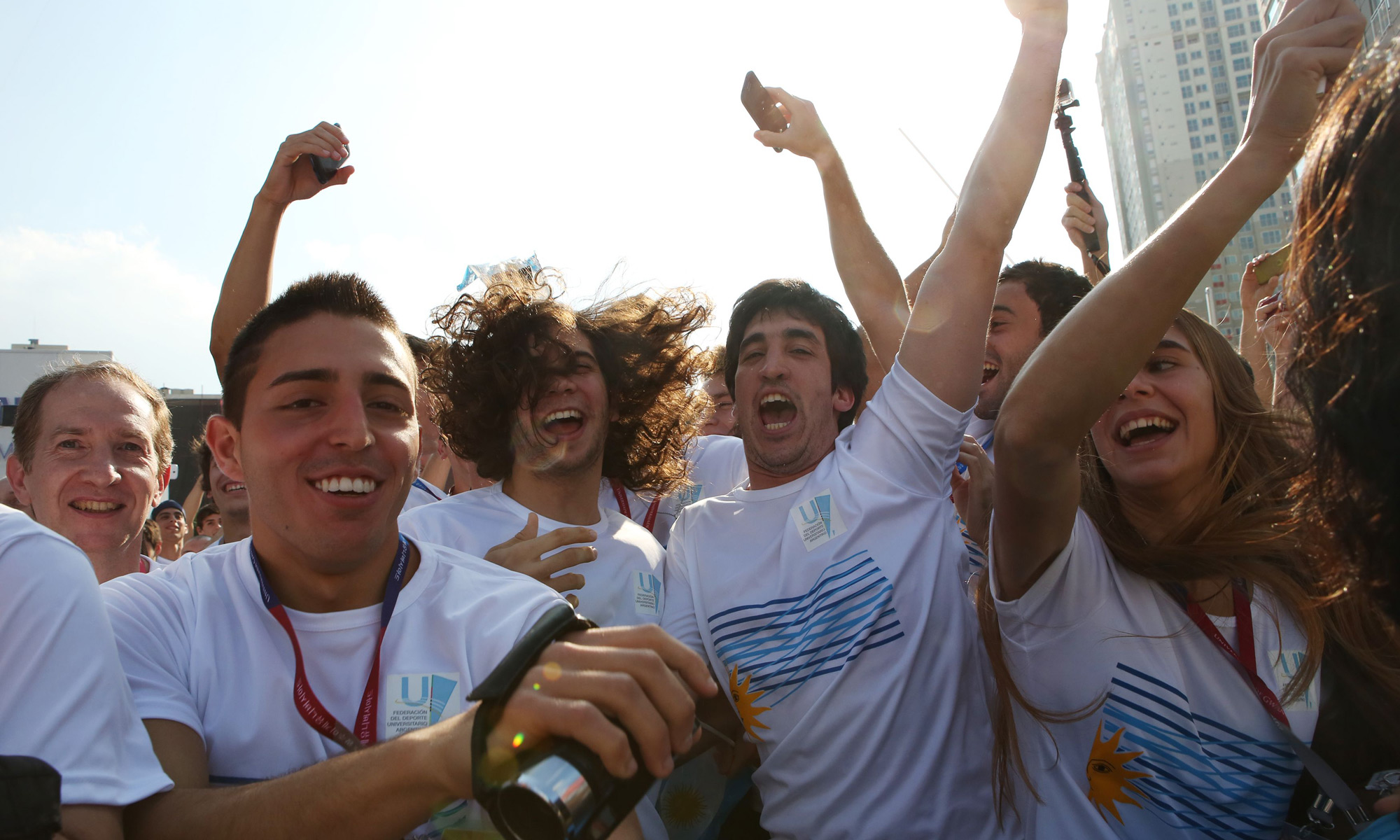 “While we might have recently officially launched the programme, Healthy Campus was born a long time ago. Only now could we develop it.
“While we might have recently officially launched the programme, Healthy Campus was born a long time ago. Only now could we develop it.
“Our university sports events attract 20,000 athletes, but there are 180 million university students worldwide,” Saintrond added. “We needed to do a better job to reach the campus and help universities put in place the systems to improve student nutrition, stress management, and help limit risky behaviour taking like smoking.”
Saintrond noted that Healthy Campus had registered 35 universities in its first three months. Saintrond also emphasised the programme’s ambitious growth targets that include having 100+ universities enrolled by the end of the year and over 1,000 universities in the next three years.
Schischlik echoed Saintrond’s assessment.
“With Healthy Campus, universities now have an extraordinary tool in their hands of the universities. It gives them the means to meet their civic duty to not only look over the student welfare but to also engage with their city and community. It’s not that easy to develop this level of monitoring and measurement.”
The youth sports chief also emphasised the symbiosis relationship UNESCO has with its sporting partners. “We’d like to take this Healthy Campus initiative and make it to ‘Healthy Schools’ so we are learning alongside FISU as well.”
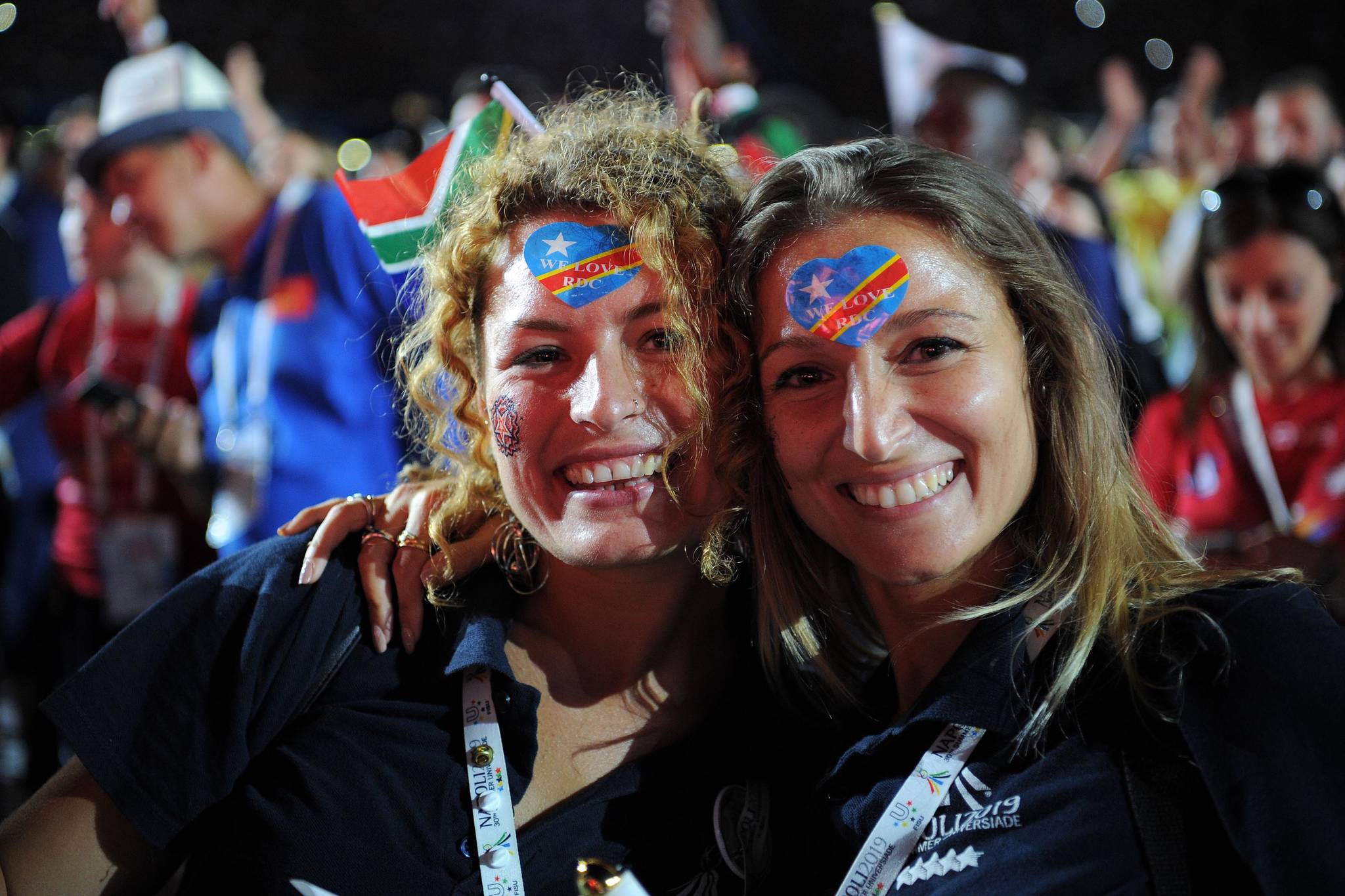 Student-athletes and sports management professionals living in the moment during the closing ceremonies to the Napoli 2019 Summer Universiade
Student-athletes and sports management professionals living in the moment during the closing ceremonies to the Napoli 2019 Summer Universiade
Fielding a question from the attendees about the lasting impact the pandemic could have on university sports, Saintrond sympathised with the student-athletes.
“Federations is one thing, but athletes are another. They cannot train as they want to. Athletes, they are not machines,” Saintrond said. “They have to train, but, largely, they are not able to use the facilities and meet with their coaches and teammates as they could before.
“Students, just like athletes, they need to socialise. They like to share their experiences. Students, they need to communicate with each other. If we have to continue without direct interaction with one’s teammates, colleagues and coaches, this would be devastating. We all need sports and communities in our lives.”



